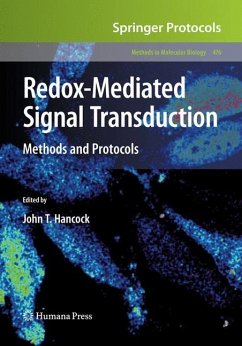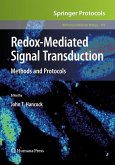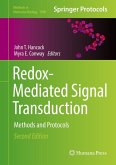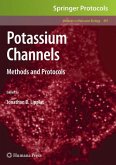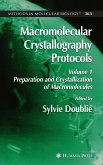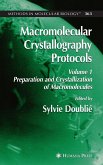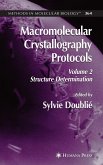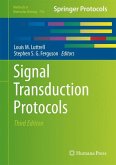Once believed to be involved mainly with energetics, including the production of ATP, knowledge of the role of redox in the control of cellular activity has been expanded over recent years. In Redox-Mediated Signal Transduction: Methods and Protocols, experienced researchers with backgrounds in both the plant and animal sciences contribute timely methods and techniques that can be used to study this important aspect of biology. Beginning with an overview and methods for measuring compounds that affect redox and the redox state of cells, the book continues with reviews of the use of GFP and its derivatives, methods to study the impact of changing redox on proteins, and methods to study the exact molecular changes that may underlie the mechanisms of action of altering redox, among other subjects. As a volume in the highly successful Methods in Molecular Biology(TM) series, chapters include step-by-step, readily reproducible protocols, lists of the necessary materials and reagents, and tips on troubleshooting and avoiding known pitfalls.
Cutting-edge and easy to use, Redox-Mediated Signal Transduction: Methods and Protocols is an ideal reference for those who wish to enter this exciting area of research as well as for those who simply wish for a more thorough understanding of the dramatic impact of redox in the control of cellular function.
Cutting-edge and easy to use, Redox-Mediated Signal Transduction: Methods and Protocols is an ideal reference for those who wish to enter this exciting area of research as well as for those who simply wish for a more thorough understanding of the dramatic impact of redox in the control of cellular function.

